What is hypersomnia?

Hypersomnia is a disorder or condition as some doctors describe it, that is classified among neurological disorders. The subtype to which it belongs is sleep-wake disorders. If you fall asleep several times a day and still feel extreme sleepiness and fatigue after naps, you are probably suffering from this sleep disorder.
It is important to know that it is normal to feel tired and sleepy if you have not rested enough from the previous day or fatigue has accumulated. But hypersomnia is a pathological condition characterized by a constant need for sleep. Although, there is no real reason for this.
The cause of primary hypersomnia is unknown. Many studies have been conducted and the main focus were neurotransmitters in the brain and cerebrospinal fluid but no clear connections were found. Genetics have been found to have a major influence on the development of this condition.
Do men suffer more from hypersomnia?
Unlike obstructive sleep apnea, for example, which is much more common in males than females, here the situation is opposite. It has been observed that more females suffer from hypersomnia than males. When we talk about age, this is a disorder that usually affects young adults and adolescents, between 15 and 25 years old.
Is hypersomnia the same as narcolepsy?
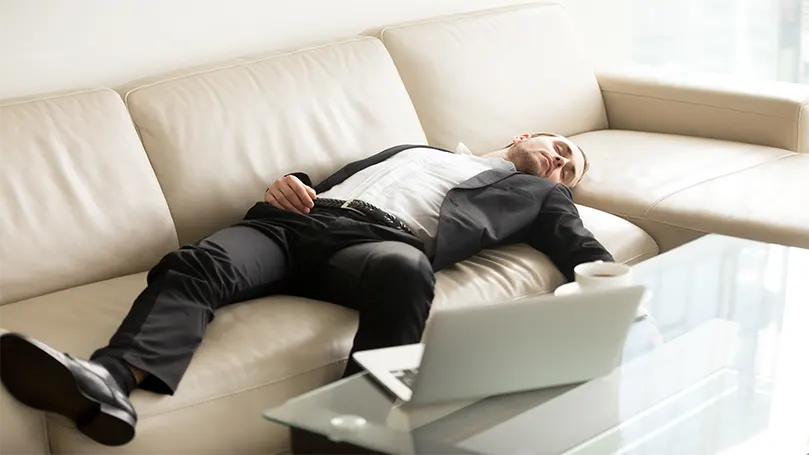
No, we can't say that hypersomnia is the same as narcolepsy. It would be most accurate to say that it is one of the potential symptoms of narcolepsy, but these are two separate sleep-wake disorders that don’t have to be related. Since hypersomnia can be a symptom of narcolepsy, then some sleep experts consider hypersomnia conditions rather than disorders as we have already mentioned.
Brain of person who suffers from narcolepsy is unable to regulate sleep and wakefulness. Also, people suffering from narcolepsy very quickly reach the REM phase when they fall asleep and the REM phase is repeated more often than regular. The sleep pattern practically does not exist, so sleep cycle is highly irregular.
The symptoms of hypersomnia
Even sleep experts do not find it easy to diagnose hypersomnia. Symptoms are certainly one of the reasons why diagnosing this condition is rather complicated. Virtually all symptoms can be associated with some other sleep disorder, as well as with other medical problems that is not sleep related. If you notice any of the following symptoms, you should definitely talk to your doctor, because if you do not have it, you probably have another sleep disorder.
Excessive daytime sleepiness

You should feel rested during the day, especially if you slept enough the night before. Small drops in energy are natural, but your overall alertness should not vary during the day.
Excessive daytime sleepiness that recurs from day to day is an alarm that you may be suffering from hypersomnia. Such extreme sleepiness affects your productivity, but also your safety.
Sleeping more than 10 hours per day

Only newborn babies should sleep 10 or more hours a day. Sometimes it will happen that you need more rest so you will sleep longer than the usual 7 or 8 hours, but if you need to sleep 10 or more hours every day and you even have difficulty waking up, that is not normal and indicates some underlying problem.
So, if you find that you can't get up even after setting up multiple alarms, it might be wise to see a professional. Having a sleep tracker can also help, as you can check whether you're actually getting deep sleep or whether you're just rolling around in bed half awake.
Daytime naps don’t improve alertness
When you are very sleepy during the day, the logical decision is to take a nap. Afternoon naps that don’t last too long are great for your mind and body. People with hypersomnia do not feel rested even after nap. This is a characteristic symptom of this condition, as it makes no sense to feel equally tired after a nap unless you have it.
Increased anxiety and irritability
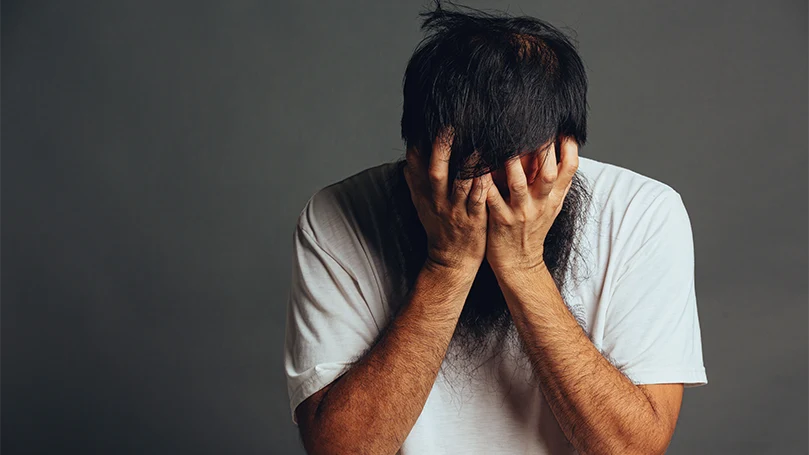
Whenever you feel tired you are more nervous than when you are rested and you are prone to mood disorders. And imagine when you are constantly feeling tired and as if you will fall asleep at any moment. That is why it is completely natural for anxiety to occur as a consequence of a constant condition that impairs your quality of life.
Whenever you feel tired you are more nervous than when you are rested and you are prone to mood disorders. And imagine when you are constantly feeling tired and as if you will fall asleep at any moment. That is why it is completely natural for anxiety to occur as a consequence of a constant condition that impairs your quality of life.
Less energy
Patients with hypersomnia have very little or no energy. As much as they sleep and try with both afternoon naps and so-called coffee naps, nothing helps. Lack of energy will very quickly affect all life activities.
Loss of appetite
You know that feeling when you just want to go to bed and you don't even feel hungry even if you haven't eaten for hours. Hypersomnia constantly causes such a feeling. It is not uncommon for this condition to cause weight loss due to loss of appetite.
Constant headaches
Migraines, brain tumors and many other diseases can also cause constant headaches. This symptom sometimes occurs in hypersomnia, and it is not known why.
Feeling restless
Restless legs syndrome (RLS) is one of the most common disorders of the nervous system. Dozens of different disorders can cause restless legs syndrome, and it can also occur on its own. It has been observed that patients who sleep for 10 hours or more due to hypersomnia often complain of restless legs syndrome.
Hallucinations
Hallucinations, aggression and amnesia are common symptoms of sleep drunkenness, another sleep disorder that may or may not be associated with hypersomnia. Frequent and rapid occurrence of the REM phase as well as its interruptions can lead to hallucinations.
Does hypersomnia come in multiple forms?

Classification systems and subcategories for hypersomnia are very complicated and even differ between different organisations, so it can be very confusing for someone who encounters this for the first time.
The most common division is – primary hypersomnia and secondary one, and we have divided the subcategories into these two main groups. So, let's quickly and briefly go over them so that you can get a gauge of how it's all structured.
Primary hypersomnia
Primary hypersomnia means that it is an independent condition and not the result of another disease or disorder. Narcolepsy type 1 and type 2, Klein-Levin syndrome and Idiopathic hypersomnia are types of primary hypersomnia.
Narcolepsy type 1
People with narcolepsy type 1 often experience cataplexy as well, so this type is also called narcolepsy with cataplexy. Cataplexy is the loss of muscle tone during the expression of strong emotions. Type 1 often goes hand in hand with hallucinations and sleep paralysis, and what is characteristic of people with type 1 is that daytime naps are useful to them which is not the case with other types.
Narcolepsy type 2
Narcolepsy type 2 is a less severe form because cataplexy does not occur and the level of orexin is normal. Orexin is a neuropeptide that plays an essential role in regulating wakefulness and appetite. Therefore, the symptoms are significantly milder because person has enough orexin.
Klein-Levin syndrome
Kleine-Levin syndrome, abbreviated KLS, is probably the rarest form of hypersomnia and very different from other types. KLS is not present every day, but occurs in episodes that can last up to 10 days. Extreme hypersomnia, hyperphagia (abnormal appetite) and abnormal sexual drive are present during episodes. Once the episode is over, the person has no symptoms until the next episode. 8 out of 10 patients with KLS are young men, and the positive side is that the episodes usually stop after the person reaches full maturity.
Idiopathic hypersomnia
Many sleep experts believe that idiopathic hypersomnia is actually the only real example of primary hypersomnia. It is a hypersomnia that is not related to anything else and causes extreme drowsiness daily. It is probably associated with the secretion of certain molecules in the cerebrospinal fluid leading to a sedative effect.
Secondary hypersomnia
Secondary hypersomnia as you may guess is the result of another medical disorder. It can also be a consequence of the substance abuse or certain prescribed medications, as well as constant sleep deprivation.
Hypersomnia caused by a medical condition
There is a long list of medical conditions related to hypersomnia. These can include epilepsy, thyroid dysfunction, multiple sclerosis, Parkinson's disease, Alzheimer's disease and many more. Also some traumatic injuries, tumors and obesity may be the cause.
Hypersomnia caused by alcohol or drug abuse
Alcohol-induced brain and liver damage is a common cause of hypersomnia. But also withdrawal from alcohol can be a trigger. Apart from alcohol, various illegal drugs but also medications can also be the culprits. Your doctor will probably be able to quickly understand which medication is causing the problem because it is known which types of drugs have this condition as a side effect.
Hypersomnia caused by a lack of sleep
Although we have said that hypersomnia is a condition that causes you to be constantly sleepy even though you have slept enough, it can also happen that inadequate sleep is the reason. If you sleep very short, less than 5 hours, or night shift work and your sleep cycle is disrupted, hypersomnia may occur. You must take necessary steps to insufficient sleep syndrome.
How is hypersomnia diagnosed?
As with any other diagnosis, it is necessary for the doctor to analyse all your symptoms, perform a detailed check-up, and then check your medical history, as well as ask you for your family history. There is also the possibility of going to a sleep clinic for diagnostics especially if polysomnography is needed. There you can get clinical sleep medicine as well.
Sleep diaries
If you've ever tried to lucid dream, then you probably know what a dream journal is. Sleep diary is similar to dream journal, except that you do not write down the details of your dreams but the time when you woke up, and this will show you how many times you woke up during the night. Diary will give the doctor an insight into your sleep pattern.
Sleep latency tests
Multiple sleep latency test (MSLT) is a very effective way to diagnose hypersomnia. Doctors monitor how quickly a person can fall asleep and fall into REM sleep during the day. If a person falls asleep very quickly and reaches the REM phase almost immediately, these are very clear indications that he or she is suffering from hypersomnia.
Polysomnography
Polysomnography is a way more complex procedure than the sleep latency test, so it is also called a sleep study. It measures brain activity, blood oxygen levels, heart rate, respiration, eye movement, and everything else considered relevant to a sleep study. It is performed in a sleep clinic or hospital, during the night. One exception is shift workers, then time of polysomnography is adjusted to their circadian rhythm.
How to treat hypersomnia?

The type of hypersomnia you have will determine the treatment. And, we can't stress this enough, you really should't self-diagnose or self-medicate. Especially when it comes to presctiptions and medications!
However, there are certain habits you should adopt to make the symptoms milder and to cope more easily with hypersomnia. Plus, most of these lifestyle changes can better your overall sleep quality even if you don't have hypersomnia.
Medications
Stimulants like modafinil and solriamfetol can be helpful for hypersomnia as well as for narcolepsy. If psychostimulants do not help the patient, then therapy involving benzodiazepine antagonists, such as flumazenil, may be considered. These are drugs that reverse the sedative effects of medications. Lithium is used for patients with Kleine-Levin syndrome.
Following good sleep hygiene
Good sleep hygiene is not something you can implement into your life overnight. It is actually a series of healthy habits that require a lot of effort in the beginning and you have to stick to a strict schedule. But it is well-worth of your effort. It will help all those with hypersomnia, but also with other sleep disorders such as insomnia and RLS. Healthy people will improve their night's sleep too.
Following a healthy lifestyle
There is no single definition of what a healthy lifestyle is. What you eat is certainly very important. Then you need to be physically active, whether it is a gym workout or yoga before bed. Melatonin supplementation may also be helpful.
Don’t forget your sleep environment, since it is much healthier to sleep in a cold room. And making sure that your room stays clean will also help out mentally. Of course, all of this is easier said than done, so start small and work your way up!
How to cope with hypersomnia?
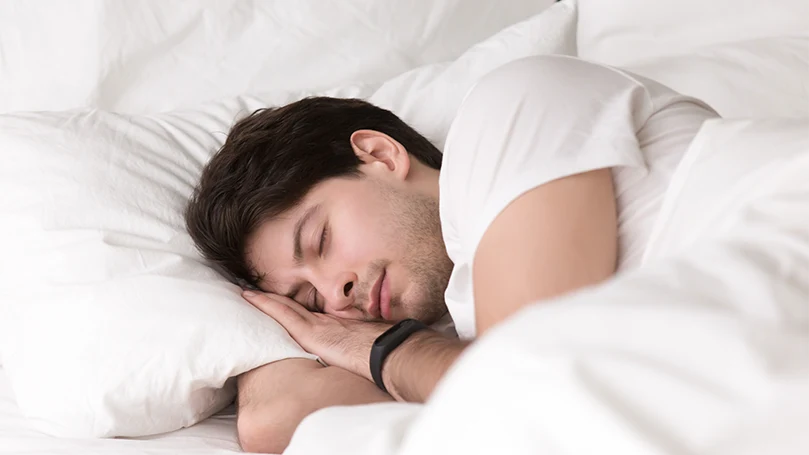
It is not easy to cope with hypersomnia, especially if the symptoms are severe. Although hypersomnia is not life-threatening and does not affect life expectancy, it certainly has a significant impact on quality of life. If you suffer from primary hypersomnia, you will probably have to deal with it for the rest of your life.
Therefore, there is no room for despair, but certain steps need to be taken to make life with hypersomnia bearable. After you visit the doctor, you need to quit alcohol, then smoking and to limit your caffeine intake. If your job involves night shifts, our advice is to find another job or negotiate to work only during the day.
You also need to make significant lifestyle changes in order to develop healthy habits. Create a bedtime routine as this can help fix your sleep-wake cycle. All in all, accept your condition and do your best to get your life back to normal.
Conclusion
Overall, while we hope that you don't use this article to self-diagnose or self-medicate, you should have a general ideal of what hypersomnia is all about. And if you do have it, make sure to see a professional and make the lifestyle changes necessary to dampen the symptoms. Lastly, if you have hypersomnia, feel free to share your story in the comments!
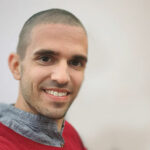

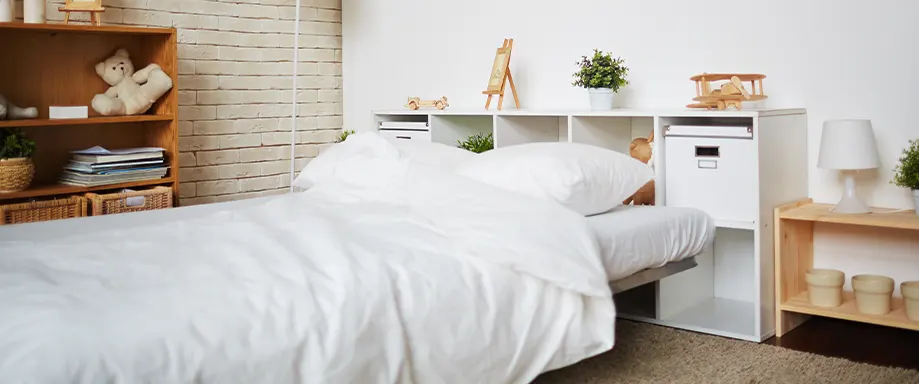












There are no comments yet
"*" indicates required fields